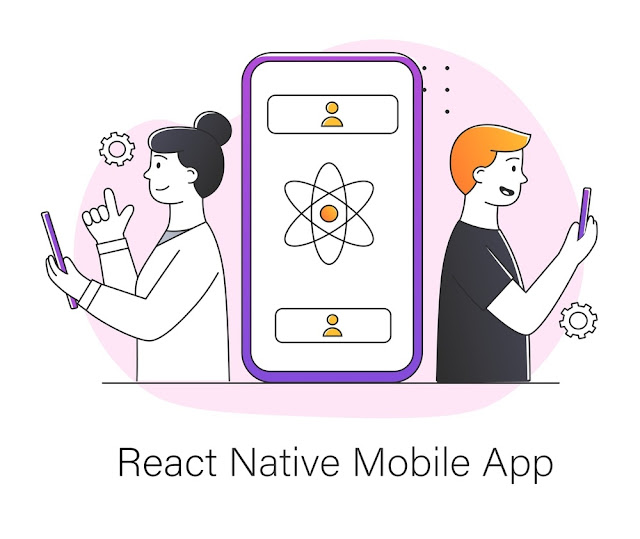Why To Use React Native for Mobile App Development?
When it comes to mobile app development, there are several frameworks and languages that developers can choose from. It’s not easy to decide on the right framework for building mobile apps. For those who are confused between the native and cross-platform approach, React Native is a great choice. In this article, we’ll walk you through why you should use React Native for Mobile App Development for your next project. Let’s dive in!
Here, are the reasons why choose React Native for Mobile App Development
React Native is a Javascript Framework.
React Native is a JavaScript framework. This means that it allows you to build native apps using Javascript, an industry-standard language for front-end development.
Native App Development is faster with React Native.
It is faster.
React Native allows you to reuse code, which results in significant time savings. It also lets you build a single code base that can be used to create an app for both Android and iOS devices. This saves time as well because it means less work overall when creating your apps. React Native also makes it possible for you to build an application with high levels of performance and stability, which will help improve your user experience overall.
You can build an App for both Android and iOS using React Native.
React Native is a JavaScript framework that allows you to build native apps on both platforms. This can be helpful if your app needs two separate versions, or if you want to test out features on both platforms before deciding which one to go with. It’s also worth noting that React Native apps are cross-platform; this means that the same codebase will be used for all of your mobile applications (iOS, Android, Windows Phone…), which makes maintenance easier because there aren’t any platform-specific differences between them.
The hot Reloading feature in React Native allows developers to view changes on the app in real-time.
Hot Reloading is a feature of React Native that allows developers to view changes on their app in real-time. It’s a great way to test changes in the app and see the impact of those changes immediately. This feature comes very handy when you want to change your UI elements or make any other change that needs immediate effect on your application.
It’s easy to maintain, manage, and update an App built with React Native.
React Native is easy to learn, which means that it’s easier for you to hire a new developer or hire multiple developers for your project. You can also easily manage and update the App once it is built for the same reasons.
React Native apps are written using JavaScript, which means that any developer who has experience with JavaScript can work on them. This makes it easier for you to maintain your app as well as update it without needing a heavy investment in resources and time.
React Native comes with support from Facebook, Google, and many other companies working towards making this technology better every day through open-source projects such as React Native Web or React Router Flux (Router). With these tools available at hand, customizing and developing your own features becomes much easier than before!
Why use react native for mobile app development? Some of the most compelling reasons include performance, cross-platform development, and stability.
- React Native is a JavaScript framework that allows developers to build native apps for Android and iOS.
- React Native is fast due to its use of the same language both in the client and server. This allows you to develop a single codebase that can be used across multiple platforms, which means you don’t have to worry about learning two different languages (JavaScript and Swift/Objective-C).
- React Native is stable because it’s backed by Facebook and has been tested by thousands of developers since its release in 2015. Because of its stability, you’ll save time debugging common issues that can occur with mobile applications during development or after deployment.
- React Native is easy to maintain since it uses Javascript on both client-side as well as server-side ios app development and android app development. This means if something breaks on one platform, you only need to fix it once instead of twice (once for each platform).
Conclusion
Why use react native for mobile app development? Some of the most compelling reasons include performance, cross-platform development, and stability.



